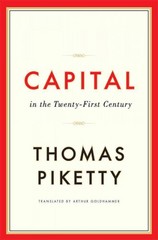Please help?!?
Question 12. (Challenging) Kara and Joel are agents in a simple two good close economy with the following production output: Pots (per day) Pan (per day) Kara 12 6 Joel 6 9 This gives the following economy wide PPC: Economy Wide PPC 1_5 U, 15 : H O Pans (per day) DIN-I450!\" 10 15 Pots [per day) 20 0 UI Both are aware that Kara has Comparative Advantage in producing pots and Joel has Comparative Advantage in producing pans. Currently they are utilising the principle of comparative advantage and hence producing at the kink point. a) What is the value of pots and pans at the kink point in the PPC above? b) How do they change their production if they wish to consume exactly 15 pots per day? (If attainable, the more pans in addition to this the better). c) The economy now opens to international trade where both Pots and Pans sell for $2. How do Kara and Joel change their production decisions (if they do)? Assume that their consumption desires are the same. d) Calculate the gains from specialisation in part c or explain why their production decision remains unchanged (hence no gains from specialisation). e) The economy now wants to consume exactly 15 pans per day (If attainable, the more pans in addition to this the better). What are the production decisions of the economy and what are the gains from specialisation with respect to the closed economy (if they exist)? 1) Joel claims that since finding the optimal production point in an open economy from part c that both Kara and Joel do not need to worry about any fluctuation in the world prices. He explains that they can always trade to any attainable consumption point and following the principle of comparative advantage with respect to their own opportunity costs must result in the greatest gains from specialisation if they exist. Do you agree with Joel's claim? If not give a counterexample (set of world prices) that would lead to a different production point generating greater gains from specialisation. g) Kara, tired of Joel complaining about having to only make pots or pans (he likes variety in his day), makes the following claim. It is possible that for a certain change in either goods price Joel can produce any mix of pots and pans during that day and the economy will still gain the maximum potential gains from specialisation for any attainable consumption goal. Does such a price change exist? If so, what price would pots need to be if pans remain at $2 and how many pots and pans would the economy consume given the same consumption goals as part b








